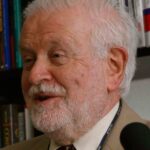The British newspaper
The Guardian
recently ran an article by Sir John Houghton asserting that “human-induced climate change is a weapon of mass destruction.” He also charged that the “United States, in an epic abandonment of leadership, was largely responsible for this threat.”
Houghton’s allegations are as wrong as they are outrageous. Terrorism and the use of weapons of mass destruction are a real and demonstrated threat. Dangerous climate change decades or a century hence is a hypothesis produced by mathematical models.
To make his case, Houghton cites statistics on this year’s heat wave in India and tornados in the United States. He knows full well that one year’s weather is not a proxy for climate. He also knows projections of human-induced climate change are based on mathematical models that have not been validated and cannot replicate past climate without the introduction of “fudge factors.”
What we know about the climate system is meager compared to what we don’t know. We know that over the past century the Earth’s temperature has increased about 1 degree Fahrenheit; we know that levels of CO2 have increased about 35 percent; and we know that human activities have had some indeterminate influence on climate. Beyond those few facts, almost everything else is hypothesis and speculation—a questionable basis for actions that have significant negative economic impacts and extend the world’s current level of poverty.
Far from abandoning leadership, the United States is doing more than any other nation to address any long-term risk of climate change. The fact that the U.S. has rejected the ill-conceived Kyoto Protocol, which imposes energy rationing as a vehicle for achieving lower emissions, does not mean the U.S. is doing nothing.
U.S. expenditures for climate-related actions will be about $4.5 billion in 2004. The Bush administration has recently released a strategic research plan to fill gaps in our state of knowledge that have been widely acknowledged and documented by the National Academy of Sciences and others in the scientific community.
Those gaps are not trivial. They include understanding natural variability, cloud formation, the influence of ocean currents, solar influences, water vapor, aerosols, and climate feedbacks. Those gaps help to explain why estimates of temperature increases associated with doubling CO2 concentration in the atmosphere vary by a factor of at least three.
In addition to investing in climate science, the U.S. has initiated a major effort to develop new energy technologies, signed more than a dozen bilateral agreements with other nations to better manage emissions, and reached voluntary agreements with major industries to reduce emissions growth.
The difference between the approach being taken by the United States and that favored by Houghton is the difference between action based on facts and due regard for consequences, and actions driven by sophisticated but invalidated computer models.
These realities lead to an obvious question: Why would a climate scientist use such extreme rhetoric when he knows science does not support his allegations? Only Houghton himself knows the answer to that question.
However, it is fair to point out that his past claim—that the science of climate change is settled—has not been borne out by the facts. That is clearly demonstrated by reports prepared by the National Academy of Sciences. Moreover, his claim that there is a “scientific consensus” on human impacts is bogus, since science doesn’t operate by polling. It is also fair to point out Houghton was co-chair of the Intergovernmental Panel on Climate Change, which provided the questionable underpinnings for the rush to judgment that produced the Kyoto Protocol.
Kyoto’s many flaws are becoming more apparent with the passage of time. While Houghton is wedded to the Kyoto process, which would lead to ever more stringent constraints on energy use, several distinguished climate scientists demonstrated in an article in Science that the technology needed to significantly reduce CO2 emissions without causing unacceptable economic harm does not currently exist.
All of this leads me to conclude Houghton is desperately trying to defend the indefensible and promote a political agenda. A politician who used such extreme rhetoric would be dismissed as pandering to a special interest. A scientist who does the same thing should also be dismissed.
The greatest threat to wise policy is extreme ideology and blind commitment to bad policy. Those flaws may really be weapons of mass destruction.
S. Fred Singer is professor emeritus of Environmental Sciences at the University of Virginia and president of the nonprofit Science & Environmental Policy Project in Arlington, Virginia. He is author and coauthor of numerous research publications and books on geophysics, atmospheric science, and energy. His email address is [email protected].




